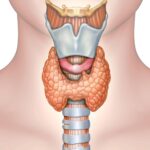- Home
- GYNECOLOGY/OBSTETRICS
- Obstetrics
- Anemia in Pregnancy

Anemia in pregnancy refers to hemoglobin levels <11 g/dl or hematocrit, 33%. However, it is imperative to note that in pregnancy, there is physiologic anemia due to hemodilution.
Physiology
In pregnancy, there is erythroid hyperplasia resulting increase in red cell mass. However, there is a disproportionate increase in plasma volume. Hematocrit decreases as well as hemoglobin levels but the sedimentation rate increases.
Causes of anemia in pregnancy
Iron deficiency
-Erythroid hyperplasia reduces iron stores, hence the need for supplementation. It is the most common anemia in pregnancy. There is additional iron demand of about 1000 mg for both the mother and the fetus
-The deficiency is caused by
- Poor intake
- Defective absorption
- Increased utilization, e.g., in pregnancy
Folate deficiency– required for cellular division and maturation
Other anemias
- Sickle cell disease- autosomally inherited genetic condition with hemoglobin S
- Has vaso-occlusive complications
- Megaloblastic anemia
Signs and symptoms
- Fatigue- might be confused with fatigue that is typical in pregnancy
- Weakness
- Mild dyspnea
- palpitations
- Tachycardia
- Hypotension
- Pallor
- Systolic murmurs
Classification of anemia in pregnancy
- Mild 10.0 – 10.9 g/dl
- Moderate 7.0 – 9.9 g/dl
- Severe 4.0-6.0 g/dl
Complications of anemia in pregnancy
- Preeclampsia
- Recurrent infections
- Heart failure
- Preterm labor
- Shock
- Postpartum hemorrhage
- Cardiac failure
Diagnosis
–Clinical and physical examination of the patient- check for signs of anemia
-Complete blood count– to check the red blood cells indices( hematocrit, Hb, MCV, absolute count)
-Peripheral blood film– check for anisopoikilocytosis
-Serum ferritin
-Serum iron
-Serum transferrin
-Serum folate
Treatment and management
Antenatal care and dietary supplementation of deficient minerals and vitamins
Specific management
Treat depending on the cause of the condition
- Adequate hydration
- Ferrous sulfate – for iron deficiency anemia
- Folic acid –for folate deficiency anemia
- Iron is given together with folic acid
- Blood transfusion is indicated in severe anemia












